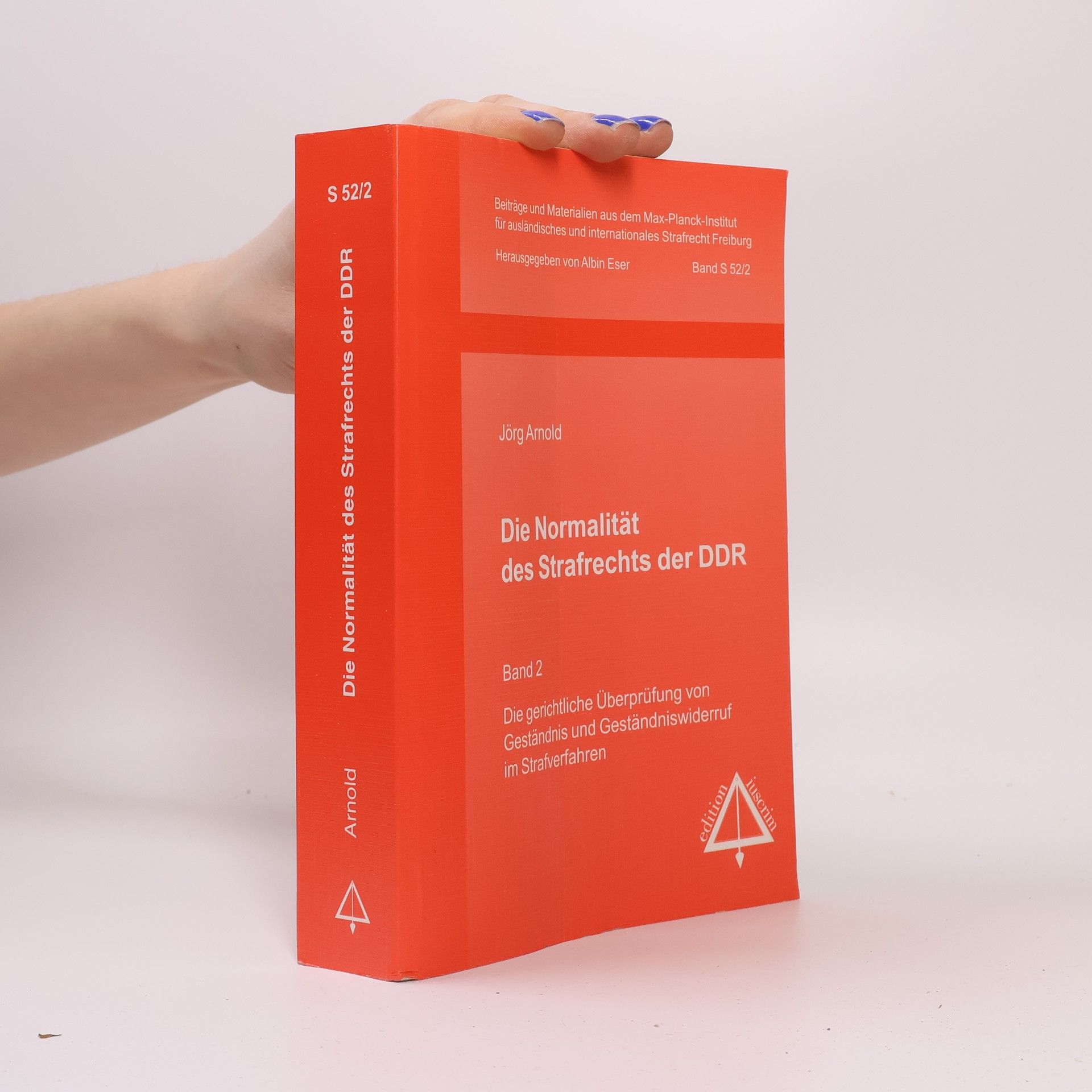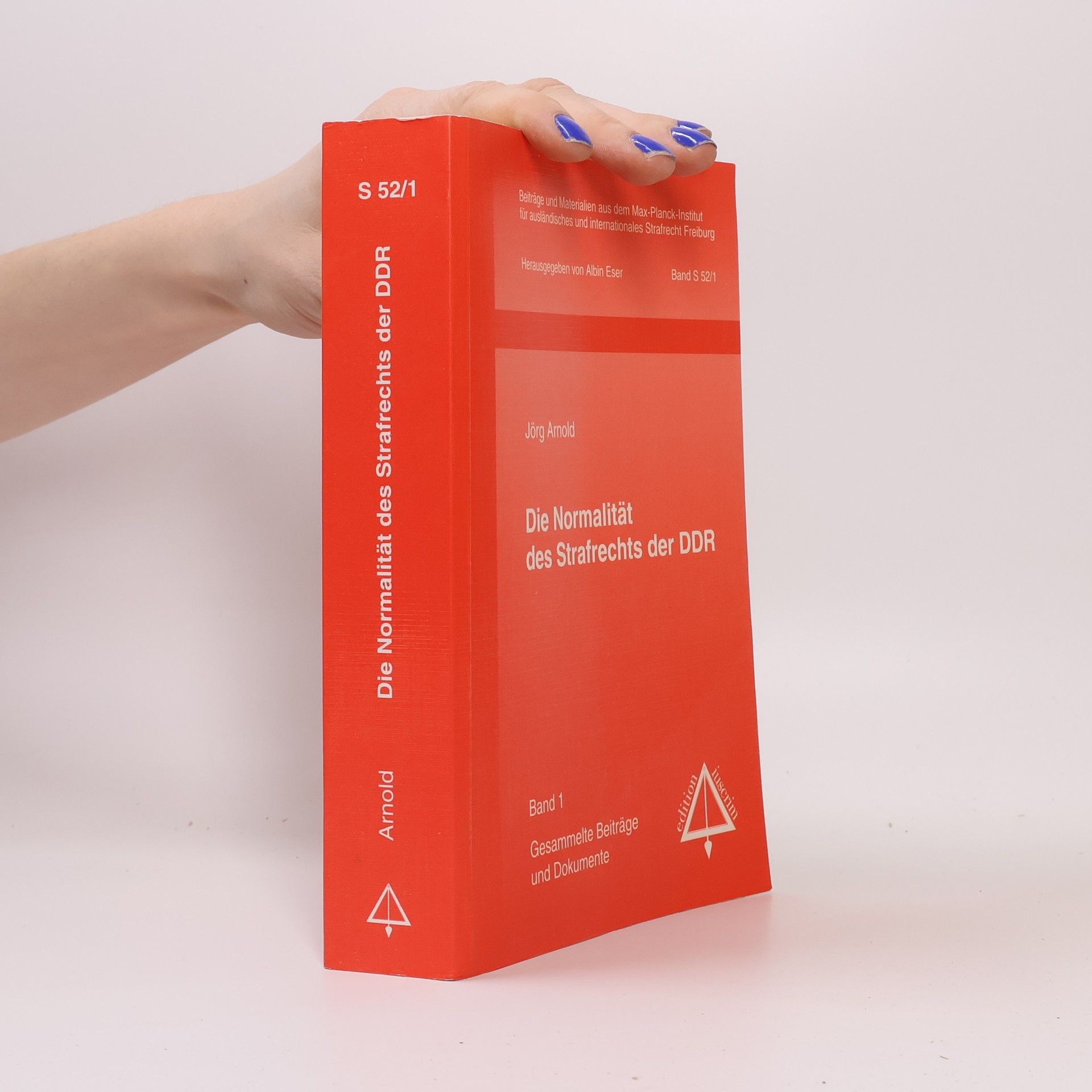Beiträge und Materialien aus dem Max-Planck-Institut für ausländisches und internationales Strafrecht Freiburg - 1: Die Normalität des Strafrechts der DDR
Gesammelte Beiträge und Dokumente
- 990 pages
- 35 hours of reading
Albin Eser is a German jurist whose work concentrates on criminal law. He previously served as an ad litem judge at the International Criminal Tribunal for the former Yugoslavia. His scholarly contributions lie in the deep analysis of legal principles and their application in international contexts. His expertise has shaped the discourse on justice and accountability on a global scale.



Gesammelte Beiträge und Dokumente